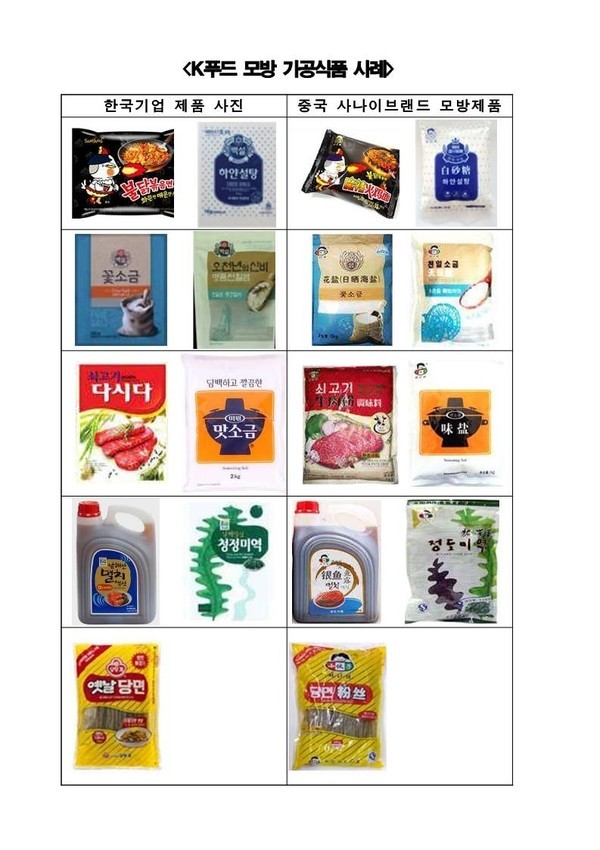Spread of Fake Buldak Ramen Threatens K-Food Brand Integrity
ntellectual Property Infringement Puts Korean Food Competitiveness at Risk; Innovative AI Solutions Deployed to Combat Fake Buldak Ramen

Samyang Foods’ flagship product Buldak Ramen has surpassed 480 billion KRW in overseas sales during the first half of 2024 enjoying immense popularity in the global market.
However as Buldak Ramen’s popularity expands worldwide a surge of counterfeit products in China is putting the Korean food industry on high alert.
This issue goes beyond mere corporate losses; it poses a serious threat to the credibility and competitiveness of Korean food brands.
One Chinese company has created a brand called Sanai in Korean characters mimicking the packaging design and character of Buldak Ramen causing confusion among consumers. Some of these products are labeled in Korean leading to potential misidentification as authentic Korean products.
This situation decreases consumers chances of purchasing genuine products and could lead to a decline in market share for Korean brands. In particular experiences with low-quality counterfeit products may lead to a loss of trust in Korean food as a whole which could have severe long-term repercussions.
Since 2021 the Korean government has established a joint task force aimed at eradicating K-food counterfeits filing trademark infringement lawsuits in Chinese courts for nine products including Samyang Foods’ Buldak Ramen sugar salt and MSG.
In May of this year a Chinese court ruled in favor of the Korean companies ordering compensation of 200000 to 300000 yuan (approximately 38.23 million to 57.34 million KRW) for some products. However this is seen as insufficient to address the root of the problem.
The importance of protecting intellectual property rights is becoming increasingly highlighted. Intellectual property is a crucial element in safeguarding a companys innovation and creativity enabling businesses to protect their brands and products.
There is a growing consensus that to maintain competitiveness in the global market the Korean food industry must strengthen and actively enforce its intellectual property rights.
Experts stress the need for the establishment of a real-time counterfeit monitoring system using AI technology alongside proactive government policies.
There is an urgent need for AI technology to quickly detect and block illegal copies online.
Additionally to fundamentally curb the distribution of counterfeit products experts emphasize the necessity of strengthening cooperative frameworks between Korean food companies and the government through international legal actions.
In conclusion to preserve and enhance the global competitiveness of K-food swift government action and efforts to restore trust between companies and consumers are essential.
Strengthening intellectual property rights forms the foundation for restoring this trust and international cooperation is also crucial. Such a multifaceted approach is expected to help the Korean food industry overcome the current crisis and solidify its position in the global market.
Website: : http://www.wip-news.com/news/articleView.html?idxno=24864
